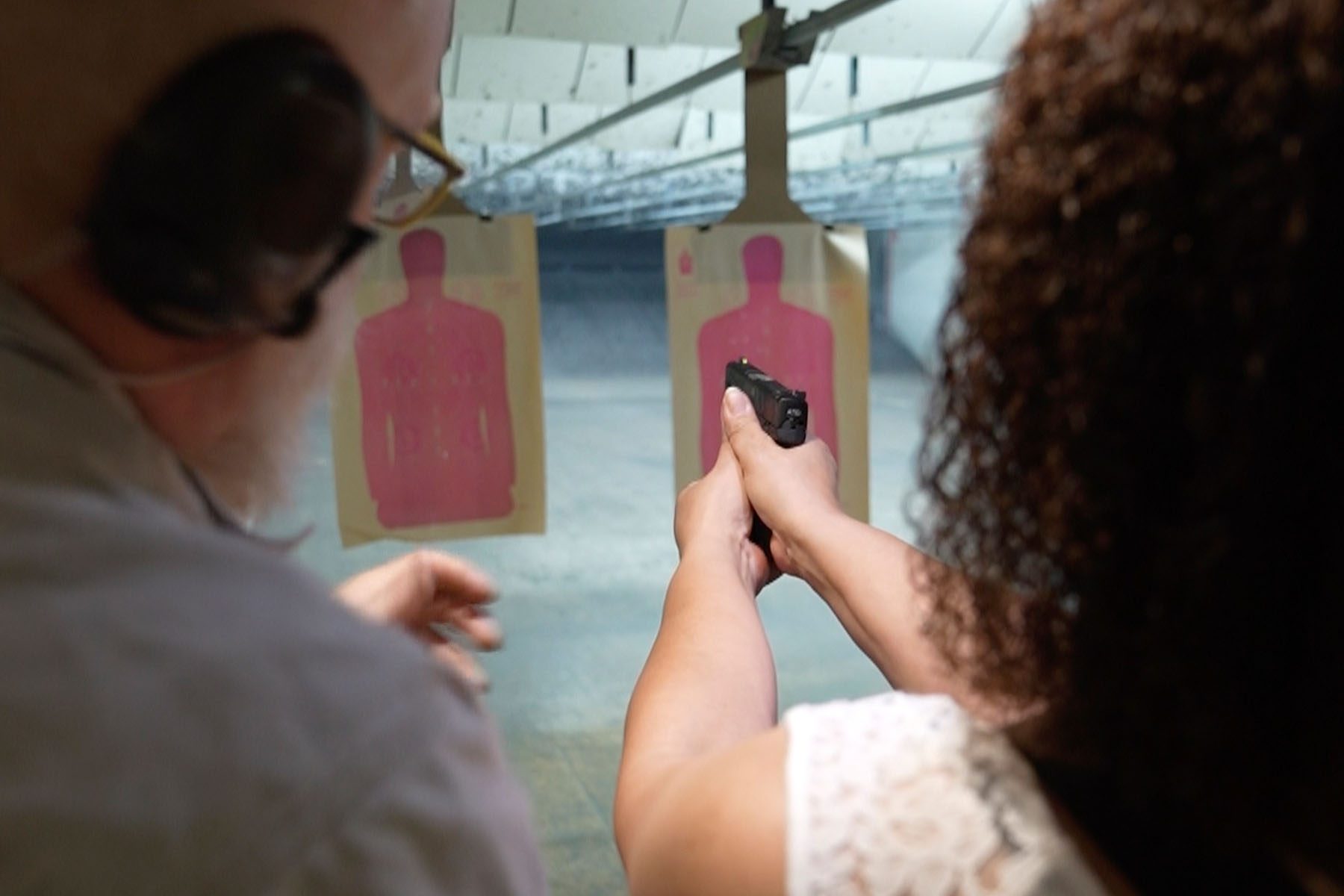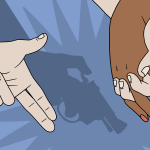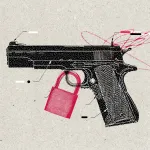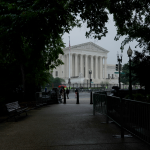On the February 1993 cover of Women & Guns magazine, a Black woman wearing a collared blue button down tucked into pink pants, large hoop earrings and a mullet haircut with feathered bangs crouches — a half smile on her face — pointing a pocket pistol.
Another cover from the following year shows a White woman wearing a blue dress, apron and pearls, cleaning a semi-automatic rifle in a kitchen.
Pro-gun messaging aimed at women has ebbed and flowed for years. More recently, gun manufacturers, sellers and advocacy groups have used themes of empowerment to demonstrate how guns can help women protect themselves from the dangers of the world.
It’s a persistent narrative that has increasingly become a talking point in the mainstream gun-rights movement and flouts research that lax gun policies leave women disproportionately vulnerable.
This tension is reflected in a key U.S. Supreme Court case, New York State Rifle & Pistol Association Inc. v. Bruen, that will determine how strictly states can regulate concealed carry licenses. The case does not directly center concerns about women’s safety; however, groups have come forward to argue that restricting concealed carry licenses will either better protect women from gun violence or put them in greater danger.
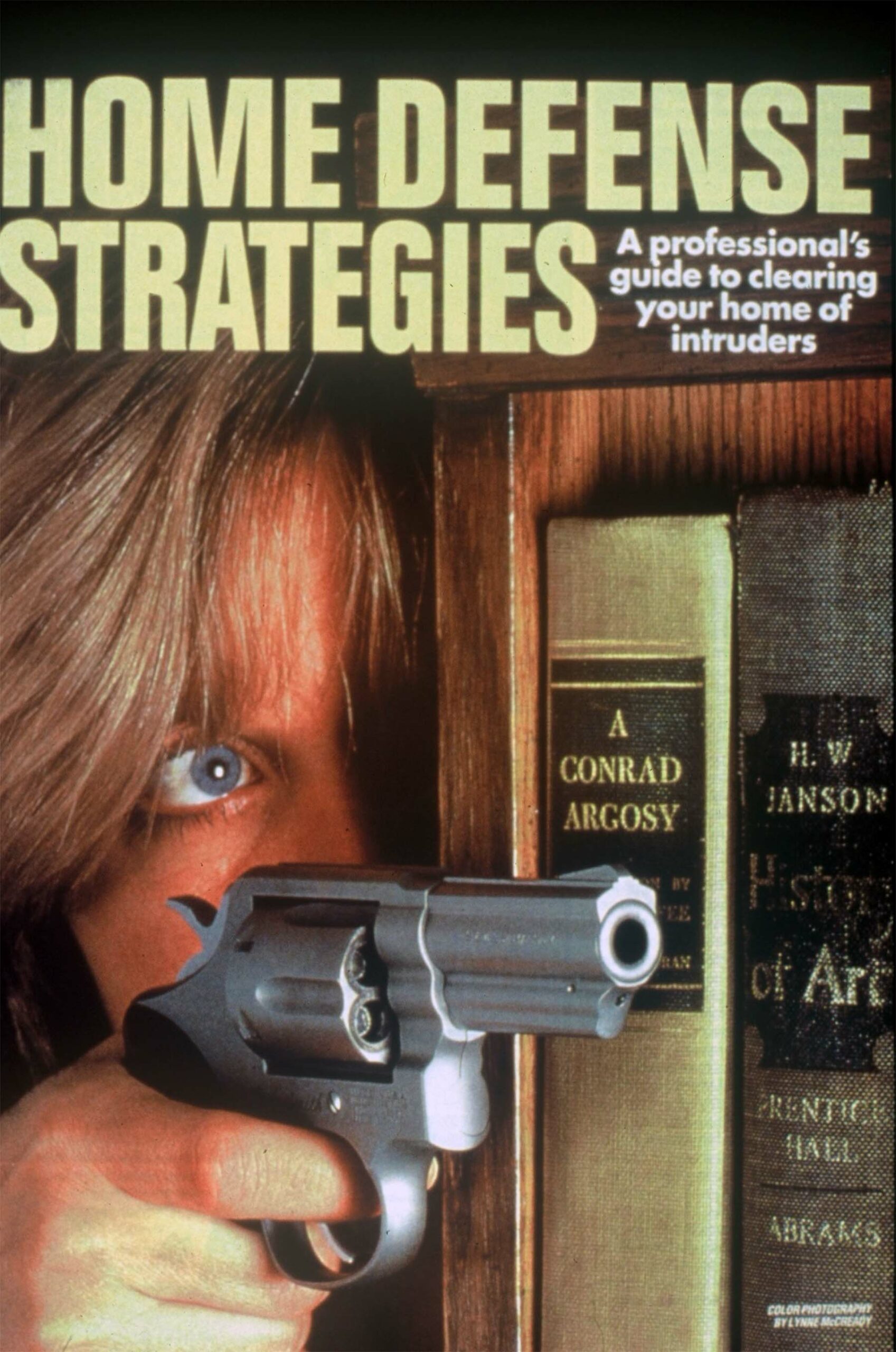
New York is one of eight states in the country with stringent “may issue” laws that give local authorities broader discretion to deny concealed carry permits. The plaintiffs in the Supreme Court case argue that such limitations violate the Second Amendment and the right to self defense. The justices heard oral arguments early this month though an official ruling likely won’t come until the spring.
If the high court decides to scale back New York’s restrictions, it could have a ripple effect, exacerbating existing problems with stalking and harassment of women and hate crimes against LGBTQ+ people, said Hannah Shearer, litigation director for the Giffords Law Center. The center, which advocates against gun violence is named after Gabrielle Giffords, the former Arizona congresswoman who survived being shot in the head while meeting with constituents in 2011.
The Giffords Law Center submitted a legal brief that argues unrestricted concealed carry specifically endangers First Amendment rights for women and people of color.
“Experience confirms that declaring unbounded rights to carry firearms in public will chill rights of speech, assembly, and prayer (especially for groups including women and racial minorities),” the brief stated. “In this tense, polarized moment, that would be deeply unwise. Now more than ever, we need democratic discourse—not vigilante violence—to uphold civil order and pursue our constitutional ideals.”
On the opposing side, the Independent Women’s Law Center filed a brief touting a popular conservative refrain: Guns are the “great equalizer” between men and women.
“Women are often at a self defense disadvantage. Having firearms allows them to be able to protect themselves from situations in which they might be in danger,” said Erin Morrow Hawley, a senior legal fellow with the Independent Women’s Law Center.
Hawley told The 19th that society should trust women to determine for themselves whether they need a gun for self defense. She cited a 2002 analysis finding that 40 percent of civil protection orders were violated, and much of the Independent Women’s Law Center’s brief arguing in favor of allowing women to carry guns outside their homes relies on personal anecdotes and the rates of crime perpetrated against women. The organization’s brief highlights several court cases, books and news articles — including an article from The 19th — that feature stories of women who either used a gun to scare off an attacker or bought a gun for protection.
“Even though too many women face the threat of violence, New York declares the threats women face generally insufficient to obtain a concealed carry permit,” the brief said. “A woman who wishes to obtain a concealed carry permit in order to protect herself is required to ‘demonstrate a special need for self-protection distinguishable from that of the general community.’”
A majority of women believe that gun laws in the country should be more strict, but it appears the connection between owning a gun and personal safety is resonating on some level for a growing number of women. Preliminary results from the 2021 National Firearms Survey showed that women represented about 46 percent of new gun owners from January 2019 through April 2021.
A key group contributing to the rise is Black women who represented 28 percent of new women gun owners.
Marchelle Davis is the owner of My Sister’s Keeper Defense, a Georgia-based gun range aimed at expanding the training and diversity of gun owners. Davis said she sees the rising gun ownership among Black women as a reflection of the enhanced violence they experience and reinvigorated Black pride amid national calls to address racial injustice.
Davis, who is a survivor of domestic abuse, said about half of her students have also endured domestic, sexual or gun-related violence. Davis views proper firearms training for women as an important deterrent.
“You cannot plead to the better nature of someone who does not have a better nature,” Davis said. “If we can’t plead to stop being attacked, we can’t march it away, we can’t hashtag it away. The only way to stop this from happening to us is to defend ourselves.”
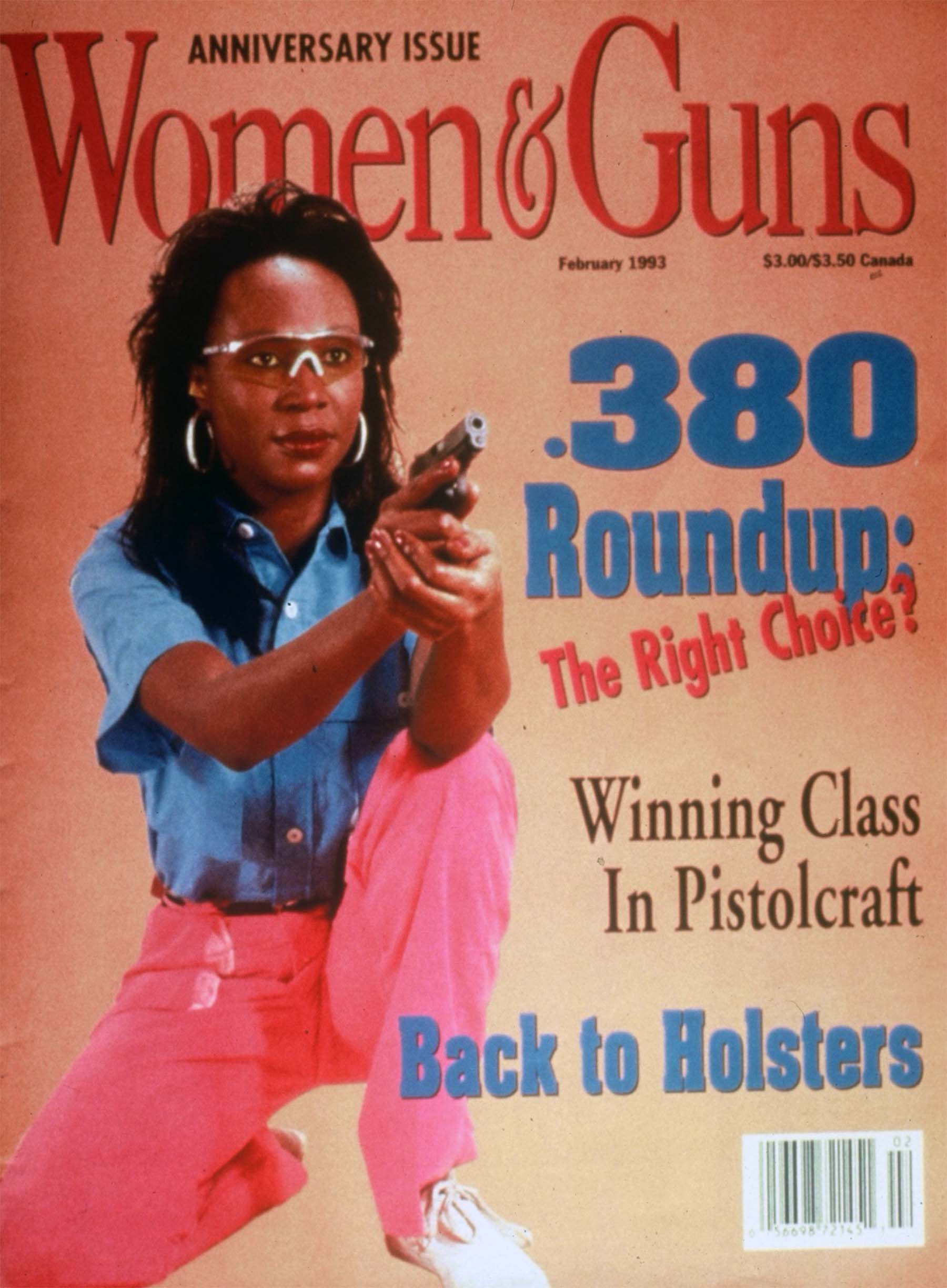
Some research found that women who experienced prior threats of gun violence by an abuser were more likely to report owning a gun for protection. But the question of whether guns make women feel safer is distinct, and seemingly divergent, from the reality of whether women actually are safer with guns.
“The unsubstantiated claim is that having a gun in the home is going to make these women safer. And there’s no evidence of that. In fact, what we do have is information that indicates that if there’s a gun in the home, women are at higher risk of being murdered,” said Susan B. Sorenson, a professor with the University of Pennsylvania who researches firearms and violence against women.
A 1995 study frequently cited by gun advocates estimated that women defended themselves using guns about 1.1 million times a year. But researchers later determined those numbers were drastically inflated. More recently, the nonpartisan nonprofit Gun Violence Archive found that the number of confirmed defensive gun use incidents by all people in the country has ranged between 1,300 and 2,107 annually over the last six years.
When introduced into a home, guns are much more likely to be used against women in intimate partner violence than used for her protection, researchers told The 19th. But it’s unclear how the prevalence of gun use in domestic abuse would translate to public violence against women when the Supreme Court rules on concealed carry restrictions, Sorenson said.
Kellie Lynch, a criminologist with the University of Texas at San Antonio, noted a strong link between domestic violence and mass shootings.
“We tend to think of domestic violence in the home, but I think that line between private violence and public safety is not always clear,” Lynch said. “I think it’s important when we’re thinking about laws that impact public safety like these concealed carry laws that it’s important to think about domestic violence.”
A Bloomberg News analysis found that 60 percent of 749 mass shootings that occurred between 2014 and 2019 were either domestic violence incidents or committed by men with domestic violence records. A paper published by researchers in May found that 59.1 percent of mass shootings in the same time period were related to domestic violence, and in 68.2 percent of mass shootings “the perpetrator either killed at least one partner or family member or had a history of [domestic violence].”
Mass shootings represent a small proportion of the country’s total gun violence and most of them take place in private homes. But as the number of these events remains high, their connection to gender-based violence is one point of concern for gun safety advocates who wonder how far the 6-to-3 conservative Supreme Court will go to limit states’ ability to enact restrictions.
